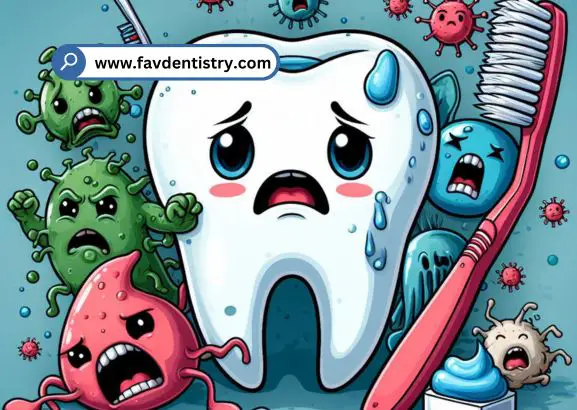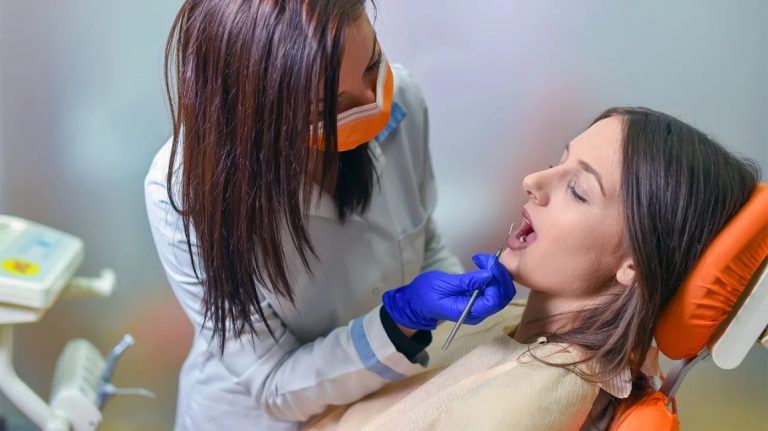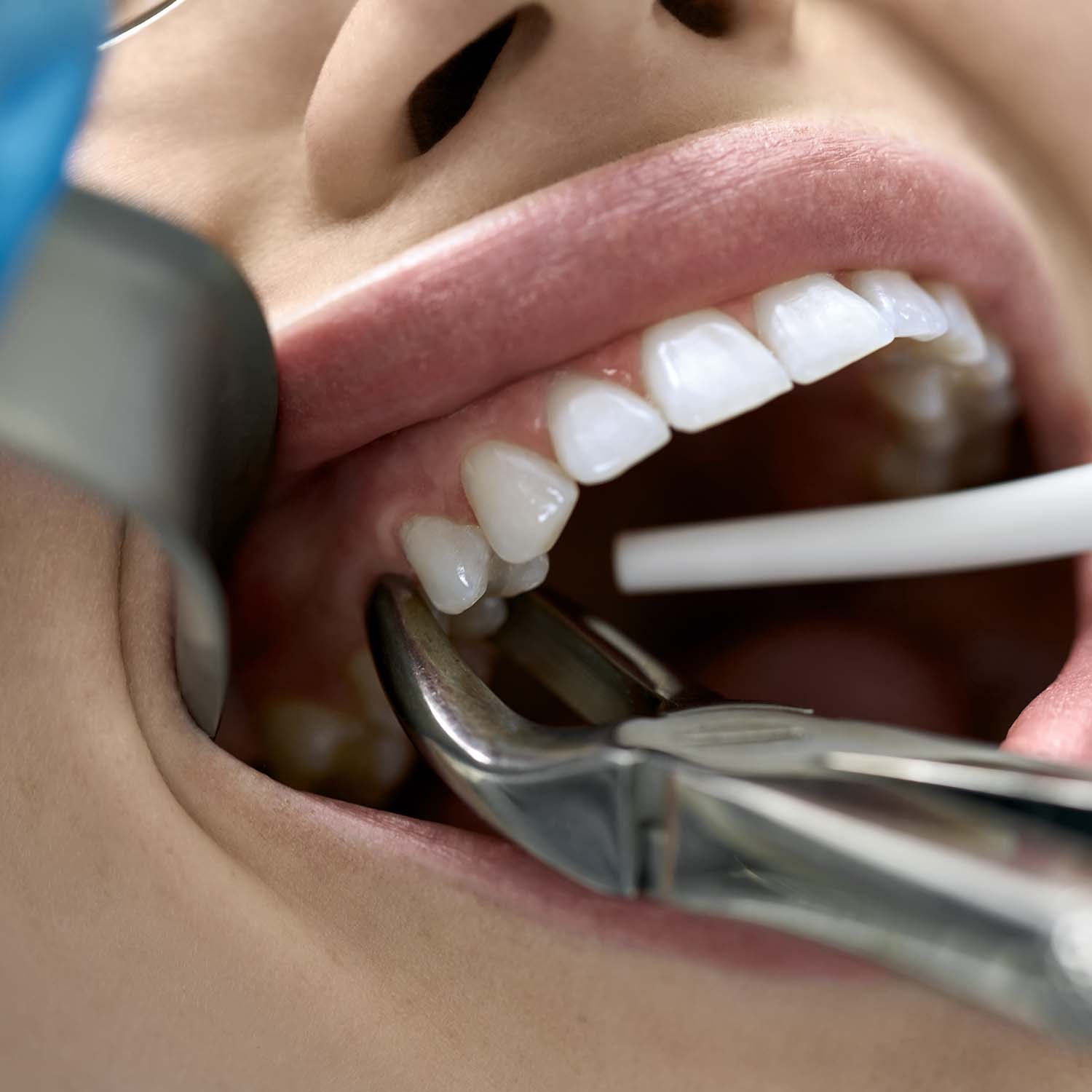Last Updated on 3 weeks by Dr. Michelle G. Brito
The first signs of wisdom teeth coming in include pain, swelling, and difficulty in opening the mouth. As the last molars emerge, wisdom teeth often cause discomfort due to lack of space in the mouth.
This article will explore these early indicators in detail, helping you understand what to expect as your wisdom teeth start to come in. Additionally, we will discuss potential complications and when to seek dental intervention for a smooth and painless transition into adulthood.
With proper knowledge and proactive care, you can effectively manage the arrival of your wisdom teeth and alleviate any associated problems.
Understanding Wisdom Teeth
Before we delve into the first signs of wisdom teeth coming in, it’s essential to understand the role these molars play in our oral anatomy. Wisdom teeth are the third set of molars located at the back of the mouth, one in each quadrant. Historically, these teeth were believed to emerge during a period of life when an individual had gained more wisdom, hence the name “wisdom teeth.” However, in modern times, we understand that this dental event is merely a result of natural growth.
Signs Of Wisdom Teeth Emerging
The First Signs:
-
Discomfort and Pain:
- One of the earliest signs of wisdom teeth emerging is discomfort or pain in the back of the mouth. This discomfort can range from mild to severe and may be accompanied by tenderness in the surrounding gums.
-
Swelling and Redness:
- Swelling and redness around the gum line in the back of the mouth can indicate the beginning stages of wisdom teeth eruption. The pressure exerted by the emerging teeth on the surrounding tissues often causes this reaction.
-
Difficulty in Opening the Mouth:
- Some individuals may experience difficulty in fully opening their mouths due to the swelling and sensitivity associated with the eruption of wisdom teeth.
-
Jaw Stiffness:
- Stiffness in the jaw, especially in the morning, is another common sign. This can result from the pressure exerted by the emerging teeth and the body’s natural response to the unfamiliar growth.
-
Bad Breath and Unpleasant Taste:
- The partial emergence of wisdom teeth can create pockets where food particles can get trapped, leading to bad breath and an unpleasant taste in the mouth.
Recognizing Early Indicators
Recognizing the first signs of wisdom teeth coming in is crucial. Discomfort and sensitivity are common early indicators. Gum swelling and redness may also occur as the wisdom teeth start to emerge. Another symptom is jaw pain, which can make it difficult to open the mouth fully.
Paying attention to these signs can help with early detection and prevent potential complications. Keep an eye out for any unusual sensations and seek dental advice if you suspect your wisdom teeth are starting to come in. Early intervention can minimize discomfort and ensure proper management of the situation.
Please don’t delay in recognizing these signals and taking the necessary steps to address them.
Potential Dental Issues

There are potential dental issues related to the first signs of wisdom teeth coming in. Impacted wisdom teeth can cause infections and abscesses. They may also lead to crowding and shifting of the surrounding teeth. These problems can be uncomfortable and may require dental intervention.
It is important to be aware of the signs and symptoms of wisdom teeth coming in to prevent further complications. Regular dental check-ups can help identify any potential issues early on and allow for appropriate treatment. Taking care of your oral health is crucial to maintain a healthy smile and prevent unnecessary pain and discomfort.
Pay attention to any changes in your mouth, and consult with your dentist if you suspect your wisdom teeth are starting to come in.
Seeking Professional Evaluation
Seeking professional evaluation is crucial when you notice the first signs of wisdom teeth coming in. It is recommended to see a dentist To determine the best course of action. Dental examination and x-rays will help the dentist evaluate the position and condition of the wisdom teeth.
Based on the findings, treatment and management options can be discussed. Adhering to these recommendations will ensure proper care and prevent potential complications. Remember to prioritize your oral health and seek professional advice as soon as you notice any signs of wisdom teeth eruption.
Managing Wisdom Teeth Discomfort
Managing wisdom teeth discomfort can be challenging, but home remedies for pain relief can help. Over-the-counter medications like ibuprofen or acetaminophen can be effective in alleviating the ache. Reducing swelling and discomfort can also be achieved through various tips. Applying a cold compress to the affected area for 15 minutes can provide temporary relief.
Rinsing the mouth with warm salt water several times a day can help reduce inflammation. Maintaining good oral hygiene by gently brushing the teeth and using a soft-bristled toothbrush is essential. Additionally, avoiding hard and chewy foods can prevent further irritation.
By following these home remedies and tips, wisdom teeth discomfort can be managed effectively. Remember to consult a dentist if the pain persists or worsens.
Extraction And Aftercare
Wisdom teeth can cause discomfort and require extraction due to several reasons. The extraction procedure involves removing the impacted teeth. After surgery, post-care is essential for recovery. Following the dentist’s instructions will ensure effective healing. Painkillers and ice packs can reduce swelling.
Eating soft foods and avoiding smoking aids healing. Gently rinsing the mouth with salt water can prevent infection. Brushing should be done carefully to avoid disturbing the healing socket. Any signs of complications like excessive bleeding or severe pain should be reported immediately.
Understanding the signs and reasons for wisdom teeth removal is crucial for proper oral healthcare. Following these guidelines will help ensure a smooth extraction and recovery process.
Frequently Asked Questions On First Signs Of Wisdom Teeth Coming In
When Do Wisdom Teeth Usually Start Coming In?
Wisdom teeth generally start erupting between the ages of 17 and 25, although it can vary for each individual.
What Are The Common Signs Of Wisdom Teeth Coming In?
The common signs of wisdom teeth eruption include jaw pain, swollen gums, bad breath, difficulty in opening the mouth fully, and aching sensation in the back of the mouth.
Why Do Wisdom Teeth Cause Pain And Discomfort?
Wisdom teeth can cause pain and discomfort because they often don’t have enough space to ultimately emerge. This can lead to impaction, inflammation, and infection in the surrounding area.
Are There Any Remedies To Ease The Pain From Wisdom Teeth Coming In?
To ease the pain from wisdom teeth eruption, rinse your mouth with warm saltwater, use over-the-counter pain relievers, apply a cold compress, and maintain good oral hygiene. However, it is advisable to consult a dentist for proper diagnosis and treatment.
Conclusion
The first signs of wisdom teeth emerging can bring mixed emotions for many people. While some may experience discomfort and pain, others may not even notice their arrival. It is important to be aware of the symptoms associated with wisdom teeth eruption so that you can take appropriate action.
Swelling, soreness, and difficulty in opening the mouth fully are some common indicators. Some individuals may also find that their other teeth become crooked or overcrowded due to the lack of space. If you are experiencing any of these signs, it is advisable to consult a dentist for a thorough evaluation.
They can determine whether your wisdom teeth will need to be removed and provide ongoing guidance for managing any discomfort. Remember, early detection and intervention can prevent potential complications down the line, ensuring your oral health remains in optimal condition.






